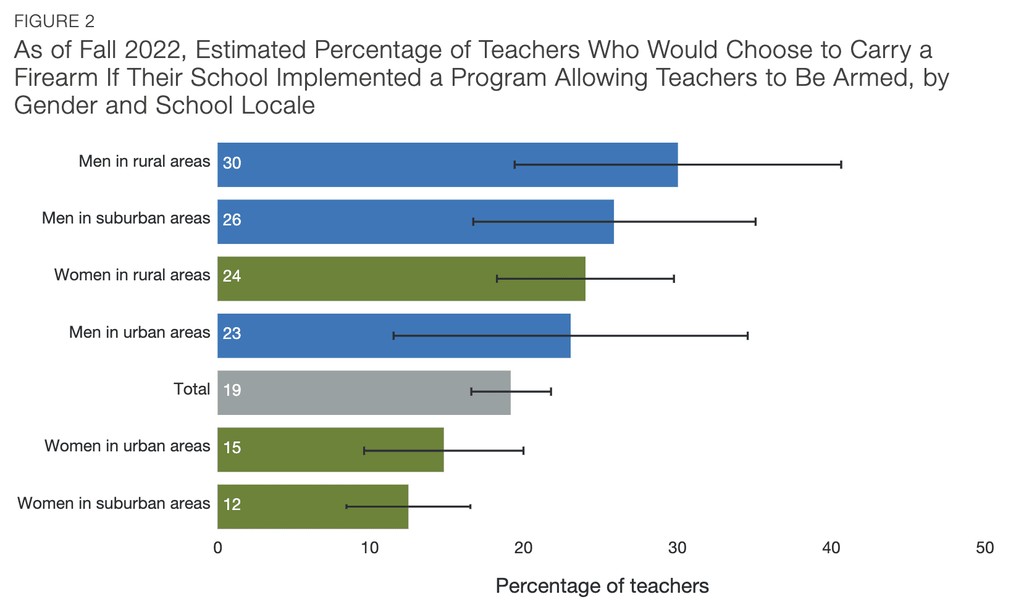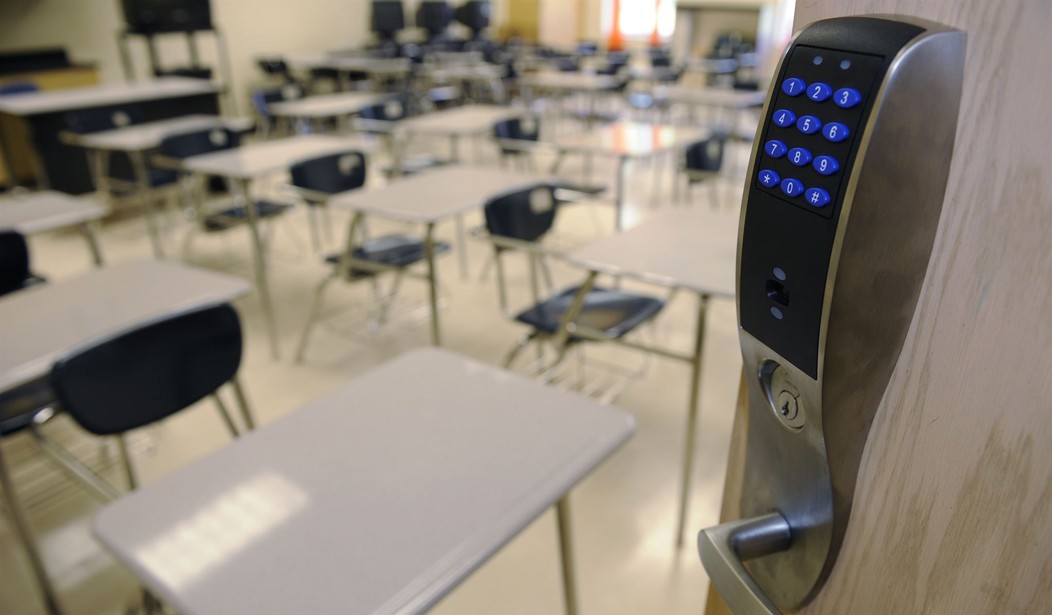Given the leftward tilt of the public education system in this country, it’s not surprising to me that a new poll of teachers from across the country put together by the RAND Corporation found majority opposition to the idea of armed school staff. However, the numbers are a lot closer than what I would have guessed, with just 54% of respondents outright opposed to the idea.
As you might expect, there’s wide variation among the 974 educators who were surveyed, with teachers in urban settings far more likely to have a negative view of armed school staff (60% opposed) than those in rural school districts (40% opposition). Those teaching in smaller schools were also more likely to support an armed school staff policy than educators in larger school systems, which could also be a reflection of rural attitudes towards not just gun ownership and armed self-defense, but the reality of police response times in smaller, more rural school districts.
Though teachers union officials like Randi Weingarten have declared that educators don’t want to be armed on the job, the RAND Corporation survey found the opposite. Even among surburban female teachers, which was the demographic group least supportive of these policies, more than 1 in 10 said they’d be willing to carry a firearm on the job to protect students and staff.

Honestly, if even 10% of a school’s staff was armed as a first line of defense against a targeted school attack it could make a huge difference in response times, and based on the survey’s findings it shouldn’t be too difficult to find those educators even in large, suburban school districts. According to RAND, there should be more than 500,000 educators willing to do so, which correlates to the anecdotal evidence we’ve heard from folks like Laura Carno at FASTER Colorado, who recently told Bearing Arms that she’s only run across one school district in the state that couldn’t find anyone interested in assuming those responsibilities. Far more common, according to Carno, is that school districts have more volunteers than they anticipated, and FASTER Colorado’s training courses for educators are generally full.
Perhaps the most surprising finding of the survey was the number of educators who listed school shootings as their primary on-the-job concern. Despite the constant media fearmongering over these incidents, most educators seem to understand how rare they really are. Their biggest concern about school safety, according to the poll, was bullying and not a targeted act of violence.
Despite the fact that school shootings are an extreme form of school violence and often drive the policy debate around school safety,only 5 percent of teachers overall selected this as the largest safety concern at their school (see Figure 9).Notably, teachers who reported interest in personally carrying firearms and those who indicated that teacher-carry policies would make schools safer were no more likely to select active shooters as their top school safety concern than other teachers.Instead, roughly half of all teachers (49 percent) selected bullying and cyberbullying as their largest safety concern. Teachers who did not selectbullying were split over what was the largest school safety concern, and there were notable differences by school grade level, suggesting that teachers’ concerns depended on the age of the students they served.
After bullying, high school teachers were most often concerned about drugs (25 percent ranked this as their largest concern) and student fights (17 percent chose this). Middle school teachers and, to a lesser extent, elementary school teachers, were also concerned about fights, but middle school teachers also ranked students’ self-harm as a top concern.Elementary school teachers, meanwhile, were more frequently concerned about violence against teachers.At no grade level did more than 6 percent of teachers identify active shooters as their largest concern about school safety.
You can read the entire 28 page report from the RAND Corporation here, and I encourage you to take a look and read beyond the media headlines about a majority of teachers opposing armed school staff. A deeper dive into the data reveals far more nuance than that simplistic take, and plenty of evidence that there are hundreds of thousands of educators who are not only on board with the idea, but are ready to shoulder those responsibilities themselves if given the chance.








